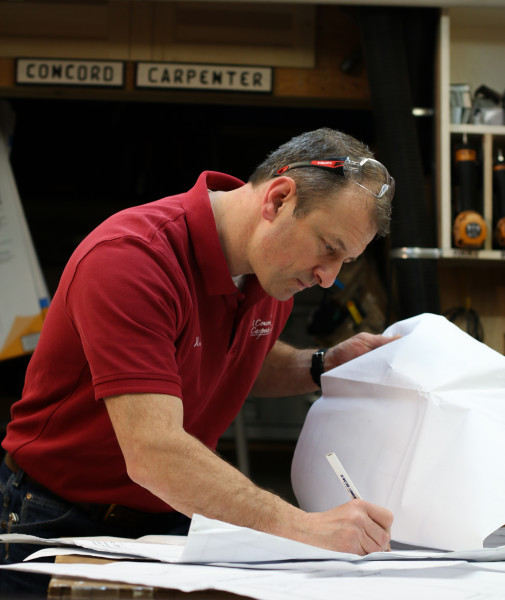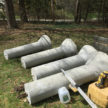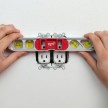Trades Skills Types
What Type Are You?
Written by Ralph Mroz
I don’t mean your personality type, or your sexual type, or your astrological type. Someone you know probably cares about those things, but what I’m referring to is your trades skills type.
Trade Skill Type 1
Are you a homeowner with no background in the trades, who still tackles the occasional DIY project? You’re a Type 1.
Trade Skill Type 2
Maybe you’re someone who has some skill in one or more trades. Maybe your family was in the trades; maybe you worked in them summers during school. You know your way around a couple or several of them, but you’re no expert. You’re competent at a lot of home improvement projects, but you also know when to call in a pro. You’re a Type 2.
Trade Skill Trade Skill 3
You might be a licensed tradesperson who works in a local shop that gets all kinds of gigs. One day it’s residential remodeling, another day it’s an industrial job, yet another day you’re doing new home construction. You’re a Type 3.
Trade Skill Type 4
Or maybe you’re a production professional who does the same job – the same specialty within a trade – every day. For example: a production framer within the carpentry trade. You’re a Type 4.
Trades Skills Types Grid
| Type 1
Unskilled DIYer |
Type 2
Skilled DIYer |
Type 3
General Pro |
Type 4
Production Pro |
|
|
Works on |
Own property |
Own property and friends’ |
Varied clients’ properties |
Large developments |
|
Trade background |
Little to none |
Some to significant |
Professional |
Professional
|
|
Jobs done |
Many trades |
Many trades |
All aspects of a trade |
One aspect of a trade |
|
Project Driver |
Ease of task Save money |
Save money Have fun |
Versatility/Creativity Problem-solving |
Efficiency |
|
Tool Collection |
Small |
Significant
|
Large |
All needed for their specialty |
|
Tool use |
Some tools Seldom used |
Varied tools Used often |
Many tools Used daily |
Fewer tools Used continuously |
|
Tool quality needed |
Value |
Value and good |
Good |
Best |
(c) 2018 Ralph Mroz

Your Trades Skills Type
Your type – your trades skills type– determines the kinds of tools that best suit you. We’re talking tools of all kinds here: power tools, hand tools, tool boxes, and so on…even the work clothes that best suit you.
- A Type 1 unskilled homeowner doesn’t do a lot of DIY work. Their main focus is on saving money and they can get by with value tools.
- A Type 2 skilled DIYer does a fair amount of work on their home and helps out friends. They are focused on saving money, but also enjoy the work. Depending on their mix of skills, they need a mix of value tools and good tools.
- A Type 3 general pro does varied work within their trade, but they do it day in and day out. They usually need good tools across the board.
- A Type 4 production pro uses a limited number of tools, but uses them continuously all day long. They are very tough on their tools and they need the best.
Which Tool Matters?
Does a Type 1 or Type 2 homeowner need a top-of-the-line circular saw? No, they don’t. Depending on how much use they will give it, they are best served by inexpensive to moderately-priced models, and features are more important than high-duty-cycle reliability. Conversely, should a Type 4 production pro save money by buying an inexpensive house-brand tool? No – that’s false economy. To them the few features they need and long-term reliability (and probably warranty and service) are the most important things to consider.
Why Does This ALL Matter?
So why does this matter? Who cares what your type is? Well, you do, and the manufacturers should. If you believe all the hype, you’d never buy anything but the top-of-the-line tools…because, you know, they’re the best! But in reality, if you know which segment of the tool-using market you’re in you can make better choices based on the use the tool will get. Manufacturers can probably make even better use of this type segmentation. If you went into your local tool store and right there on the box it said “For Type 1 and Type 2” or “For Type 2 and Type 3”, the sales process – the process that matches customers to products – would be better and more efficient – for both the consumer and the manufacturer. Retailers can benefit, too. If they have appropriate buckets into which to put you, they can more easily help you select the right tool. Think how much smoother, and more satisfactory, if both sides of the sale used this terminology. You’d walk into a tool store, tell the sales person, “I’m a Type X and I need a (tool)” — you’d both know what you were talking about.
Self-knowledge is a good thing for everyone.
About the Author ~ Ralph Mroz
The son of an electrician, Ralph grew up in the trades, literally with a screwdriver in his hand. He worked various construction jobs summers while in high school and college. He absorbed enough from the tradesman that were part of and always around his family to renovate the five homes he and his wife have lived in, while always knowing when it was smart to hire a professional. His favorite tool is the hammer; he really likes hammering nails although he realizes that hardly anyone does anymore.











